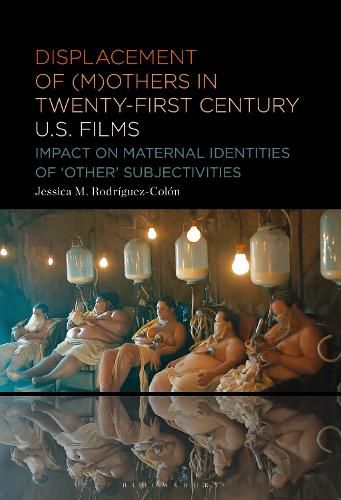Readings Newsletter
Become a Readings Member to make your shopping experience even easier.
Sign in or sign up for free!
You’re not far away from qualifying for FREE standard shipping within Australia
You’ve qualified for FREE standard shipping within Australia
The cart is loading…






This book retraces maternal philosophy by presenting an alternative genealogy and providing a concrete definition of the term (m)other. Most importantly, it introduces a new theory of The Gaze Economy in order to evaluate characters in films and measure its effect on the subjects in those films.
This book looks at philosophical traditions that excluded female voices and that codified women into motherhood and labor of care. From the philosophical foundation, the book moves toward presenting key ideas linked to maternal subjectivity, arguing that maternal subjectivity is rhizomatic, rather than just a split.
The central inquiries lead to the concept of (m)others and the discourses that this concept and these identities highlight, discussing maternal politics and the dispossession of maternal bodies into certain spaces to understand the importance of looking into the performativity of the maternal in both, fictional and non-fictional spaces. The author uses The Gaze Economy to look at the performativity of mothers as much as its aesthetic representation.
$9.00 standard shipping within Australia
FREE standard shipping within Australia for orders over $100.00
Express & International shipping calculated at checkout
This book retraces maternal philosophy by presenting an alternative genealogy and providing a concrete definition of the term (m)other. Most importantly, it introduces a new theory of The Gaze Economy in order to evaluate characters in films and measure its effect on the subjects in those films.
This book looks at philosophical traditions that excluded female voices and that codified women into motherhood and labor of care. From the philosophical foundation, the book moves toward presenting key ideas linked to maternal subjectivity, arguing that maternal subjectivity is rhizomatic, rather than just a split.
The central inquiries lead to the concept of (m)others and the discourses that this concept and these identities highlight, discussing maternal politics and the dispossession of maternal bodies into certain spaces to understand the importance of looking into the performativity of the maternal in both, fictional and non-fictional spaces. The author uses The Gaze Economy to look at the performativity of mothers as much as its aesthetic representation.